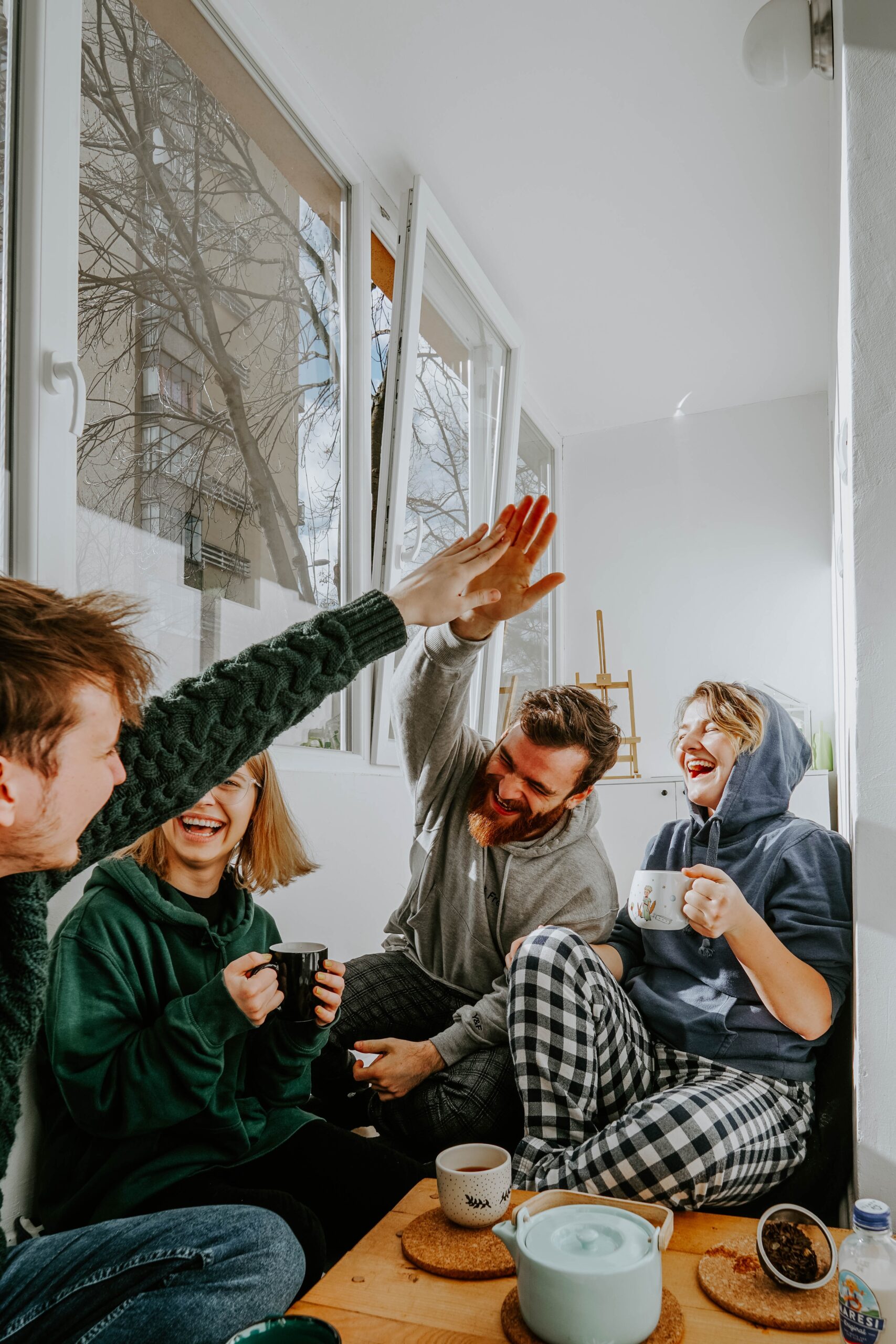There are many benefits of laughing for your mind and body, which is widely known. In reality, cocoa/chocolates are not as efficient at activating the pleasure centers as laughing is, thus laughing really helps individuals feel happier.
Several academic research has revealed that individuals may experience the same level of satisfaction from smiling as they can from exercising. People who laugh or grin frequently are typically happier, more active, and healthier. A grumpy individual, on the other hand, could identify with feelings of rejection, victimization, or marginalization.
As a young adult/adult while watching any comedy movie or any funny advertisement on TV with family and laughing our heart out loud, that doesn’t happen often. Even on a day to day basis when someone cracks a joke in a get together or in a group of office colleagues, if we just give a smile and then we even tend to forget what was the topic that was a bit happier, which was lighter than other heavy or constructive aspects of the work.
Why does this happen?
According to a study from the Arkin Mental Health Institute in Amsterdam, the fast pace of life and work in a city is linked to a 21% increase in anxiety disorders and 39% increase in mood disorders (depression, bipolar disorder, etc.).
With too much use of electronic gadgets in our life has made our dopamine rush very high. The world around us has become more stimulating than before. We need to stimulate ourselves a bit more than before since our threshold has changed.
We smile while watching something funny like having a burp and just forget or just a slight reaction to that.
While keeping up with this fast pace we forgot to be in the present moment and to cherish it. Which is why Mindfulness being the need of the Hour!
Other reasons leading to such concern are use of drugs, alcohol, excessive social media usage, disturbed relations with friends and family etc.
It is important to at least note such changes in your life when you catch yourself not laughing enough. Let’s take a short imagination trip to your happy time.
Take a pen and a paper /or sit and close your eyes. Reflect back on your life, you can be sure that there have been moments that have made you happy. Perhaps it was when you made your first automobile purchase or when you got that long-awaited promotion. Another example would be the time you shed 15 pounds and were able to fit back into your favorite jeans without having your circulation compromised. Positive feelings like excitement, relief, pride, and, of course, pleasure arise when wonderful things occur. Our well-being depends on these emotions.
Also these emotions wither off, it’s not that they linger over for days, and that’s the reason that we need to practice gratitude and mindfulness in our daily life. It helps us to be connected to our daily changes and vital life processes.
So how do we practice the method of mindfulness?
- Mindfulness can be practiced in a broad way, there are many ways to do that. While you eat, walk, color, commuting or like simple doodling, it can be practiced.
- The classic way to practice is paying gratitude by paying attention to what is the current positive aspect in your life. It helps us to focus on the aspects of NOW which makes us mindful about the current condition.
- Aligning your attention to the body is necessary for understanding your body functioning. This check on your body helps regain your consciousness to the current body functioning.
- Having a check on your five senses by observing your surroundings, smell that you are getting, observing what people around you are doing, taste that you can feel in your mouth, observe what you are doing, where you are.
- Breathing, focus on your breathing. Repeat this, at least 3 times a day. Focus on your attention on five deep belly breaths and having a focus on your inhalation and exhalation. Throughout your day have a note on how you are breathing, is it shallow or deep.
- Our mind has been a wanderer. Whatever we do, it wanders. It’s important to have focus so as to understand and be in the present. Active listening is what you can practice. While talking to your friend, teacher, supervisor, colleague, family members, anyone, just be an active listener. Now, how do we practice active listening? Simply, just have the full attention to what the other person is trying to say. Having the attention fully on to the conversion also changes the meaning to that.
Who can practice mindfulness? Is there any definite age?
No, there is no certain age or definite person. Anyone who understands the meaning of the word and also notes the essence to practice it can do. The value its adding to your everyday life.
Observe the good changes in you.
The road ahead
If someone you know is exhibiting any symptoms related to Mental health, then seek medical help immediately. Athena Behavioral Health offers Residential Treatment Programs for people suffering from Psychological or any other Mental Health condition. For more information and treatment programs WhatsApp us at 9289086193. Our admission counsellor is available to guide you with your queries.






